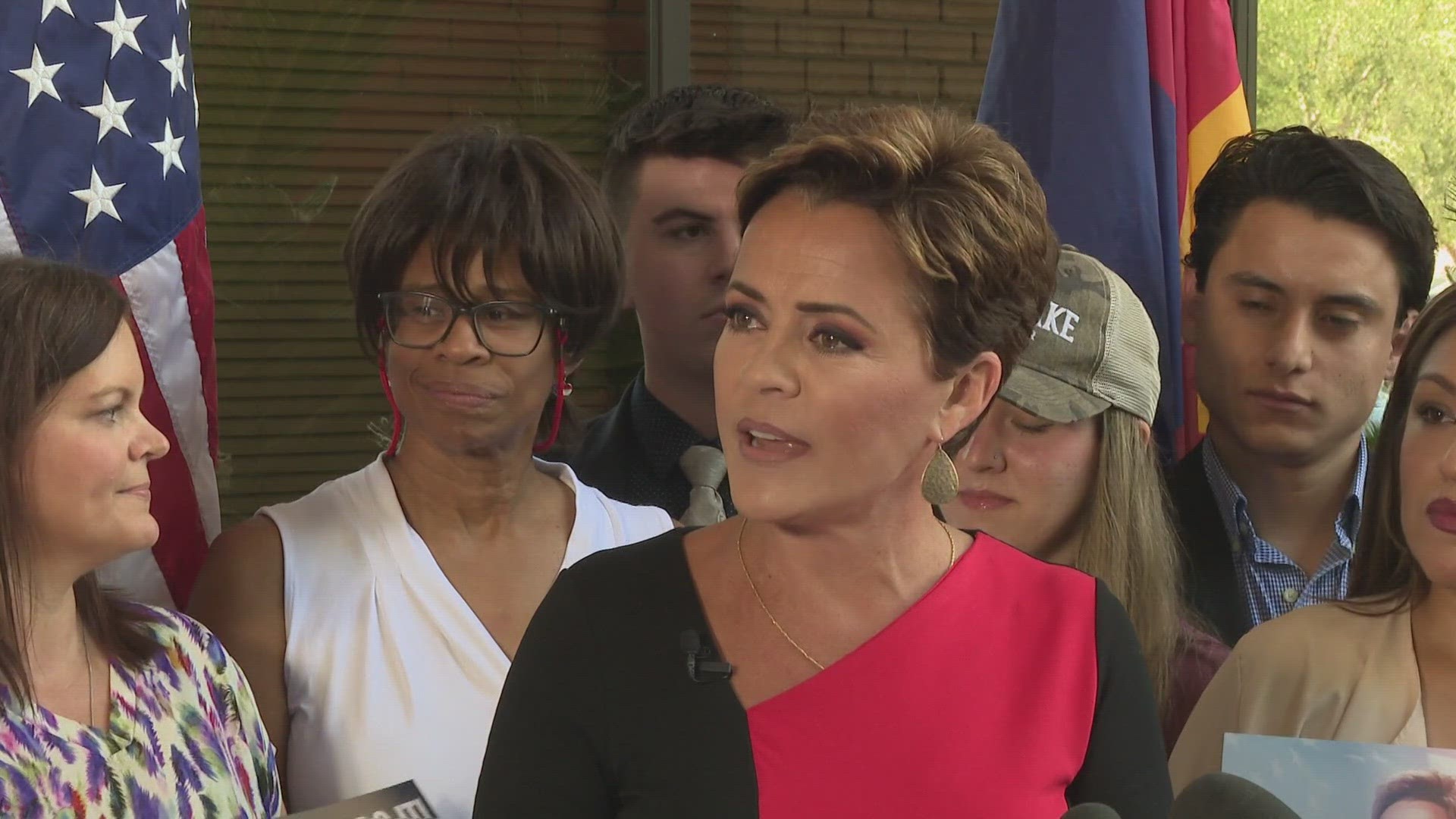PHOENIX — A Maricopa County Superior Court judge has heard closing arguments in a defeated candidate’s latest legal challenge related to the 2022 election.
Judge John Hannah said he will issue a ruling “very soon” in the lawsuit brought by former Republican nominee for governor Kari Lake.
Lake is suing the county in an attempt to get access to copies of voters’ signatures on mail-in ballot envelopes. The trial revealed a fundamental dispute between the two sides over whether state election laws protect information on the affidavits from public viewing. Voters sign the outside of envelopes of mail-in ballots and drop-off ballots, which are then used by the county of confirm identity.
Lake was not in attendance during the second day of the trial. The former TV anchor, who has used her large platform in the state to spread false election conspiracies, has struggled in election-related lawsuits.
Judges have ruled against Lake in two trials and fined Lake’s attorneys $2,000 and $122,000 respectively for making “false” and “frivolous” claims.
In this trial, attorney Bryan Blehm argues the county illegally denied the plaintiffs access to copies of the signatures of mail-in voters. Lake and the nonprofit, We the People Alliance, said they want to compare the signatures to other documents.
“The very purpose of the Public Records Act is to ensure the people act as a check on the government,” Blehm said Monday.
The county has previously demonstrated employees followed the law regarding signature curing and verification of mail-in ballots.
County Recorder Stephen Richer testified during the trial’s first day that images on the envelope are considered part of the “voter registration record” and deemed off-limits by state statute.
During the trial, Hannah denied four requests by Lake’s attorney for three different witnesses to take the stand. Hannah said they were either not credible or not relevant to the case.
The county presented several witnesses, including voters who testified they received canvassers at their door after the 2020 election to ask how they voted and whether they received extra ballots in the mail. The county’s attorney used those witnesses’ testimonies to demonstrate how a politically charged climate could dissuade citizens from voting if they knew their affidavit signatures could be public.
Two nonprofit leaders also testified they’ve felt intimidated by protestors in the past and they would be uncomfortable knowing their signatures were made public by elections officials.
“Even if all their complaints and feelings are true, the people’s right to participate in our government, to oversee its operations, is fundamental,” Blehm said, in response to that argument. “Americans have always been able to ask questions after the fact. We have always been able to challenge our elections and our elected leaders.”
Pro-Trump activists, nonprofits and newsrooms have filed unprecedented numbers of public records requests during the past two election cycles, placing immense pressure on elections offices. Richer testified he worried bad actors in other countries could obtain affidavit signatures. Richer said “the latest version” of a signature kept by the county is an important tool used to verify a voter’s identity.
Arizona’s public records law allows government officials to withhold records from the public if it is proven that doing so is “in the best interest of the state.”
Richer, who is also an attorney, testified he believes a person’s right to keep their ballot affidavit signature private carries more “constitutional heft” than other factors.
Up to Speed
Catch up on the latest news and stories on the 12 News YouTube channel. Subscribe today.

